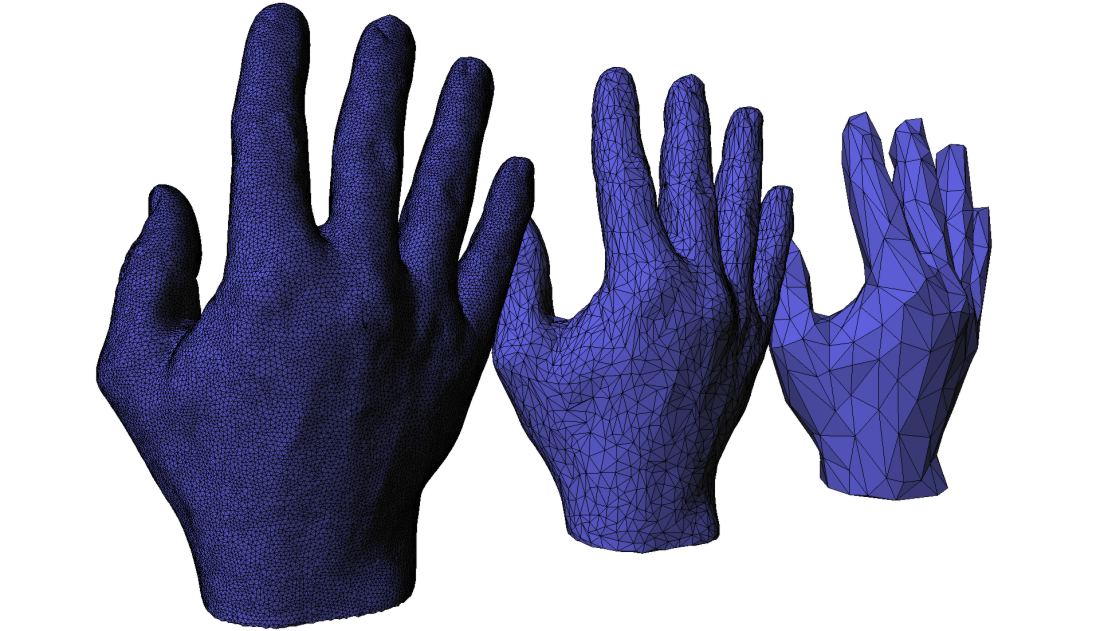Description
Mesh coarsening is an important process for reducing the complexity and/or the mesh element count. Simplification reduces memory usage as well as increases the performance of algorithms operating on a simplified mesh. Especially meshes, which where generated based on 3D scans, often have an unnecessary high element count and benefit from surface simplification.
There are several mesh coarsening algorithms available and some of them even are implemented in open source meshing software tools. The goal of this project idea is to evaluate different implementations and interface them with ViennaMesh. Possible candidates include
- CGAL [1]
- ACVD [2]
- QSlim [3]
- Tetgen [4]

image by CGAL [1]
Benefit for the Student
The student will get in touch with the challenging topic of 3D meshing and will learn the important aspects of mesh simplification.
Benefit for the Project
With these mesh simplification modules, ViennaMesh is able to simplify meshes for performance increases or complexity decreases.
Requirements
The student has to provide good skills in C++ and interest in geometry and computer science, mathematical and geometric knowledge is advantageous.
Mentors
More information
[1] http://doc.cgal.org/latest/Surface_mesh_simplification/index.html#Chapter_Triangulated_Surface_Mesh_Simplification
[2] http://www.creatis.insa-lyon.fr/site/en/acvd
[3] http://www.cs.cmu.edu/~./garland/quadrics/qslim.html
[4] http://wias-berlin.de/software/tetgen/